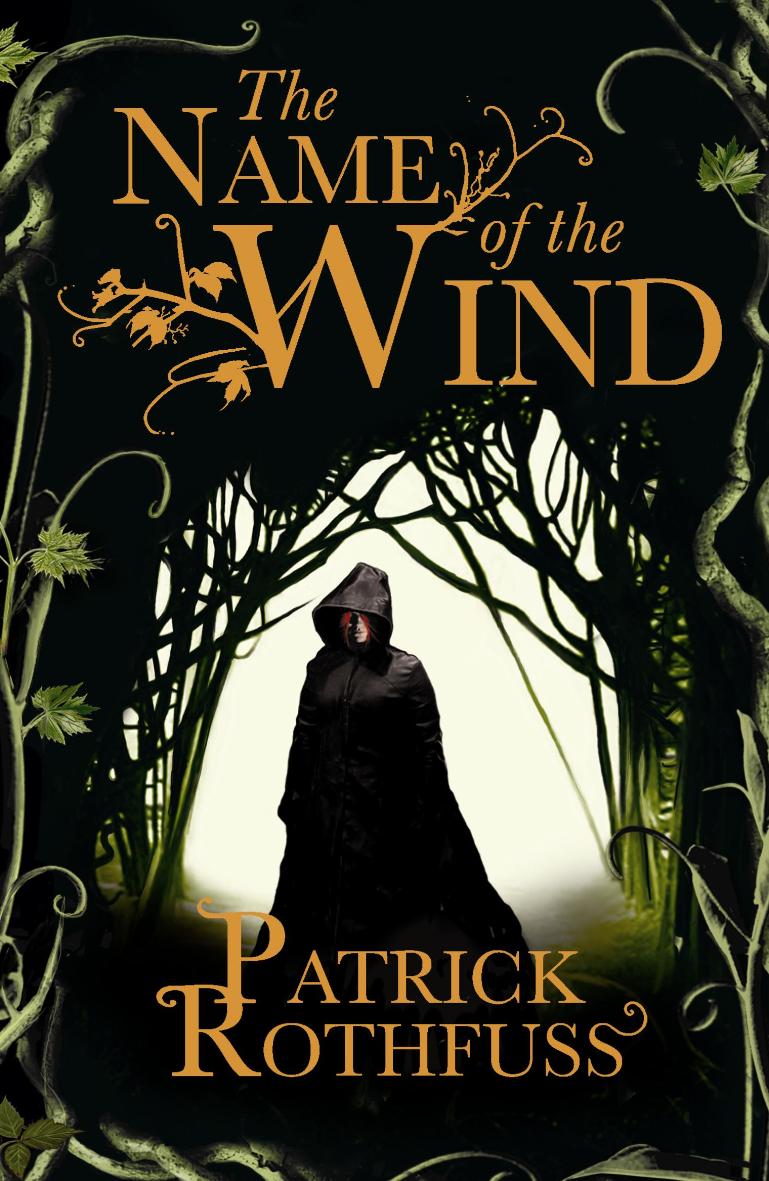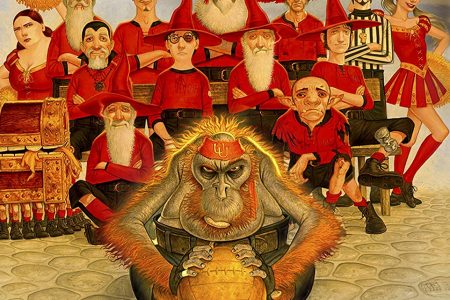Book One of The Kingkiller Chronicles by Patrick Rothfuss
The paperback edition that I read is 662 pages of small print text. It’s a big book. Yet I raced through it in a euphoric rush as I devoured this book (not literally; that would be hideous, to steal a line from Alan Partridge), because the prose is so well written and the story is so engaging. I couldn’t stop and enjoyed it from start to finish, and I need to have the rest of the story NOW because I need to know everything that happens. I think you can call that a recommendation.
We are introduced to Kote, an innkeeper of a hardly used inn of a small out-of-the way town, living a quiet life. However, it turns out that he is actually Kvothe, a legendary hero in hiding, and his assistant, Bast, is his student and also a prince from the mystical Fae. Kvothe saves Chronicler, a travelling scribe, on the road to the town; Chronicler recognises him (in fact, he’s been looking for him) and asks to record his story. Kvothe decides to recount his life story, and the book then turns into a first-person account of Kvothe’s early days.
Kvothe grew up as a child of the Edema Ruh, a respected troupe of travelling performers (his parents are the leaders), where he learnt many things, including playing the lute; he learnt even more when the troupe picked up an arcanist (a sort of magician) called Abenthy, a graduate of the University, who teaches Kvothe about science and ‘sympathy’ (the type of magic in this world – Rothfuss has created a very scientific approach to the concept of magic in this sympathy, connected to quantum energy and control of the mind and knowledge in general), which Kvothe shows aptitude for because he is very intelligent and learns incredibly quickly. Kvothe also learns about the nature of the true names of things and the power that this knowledge can bring (which the title of the book refers to: Kvothe witnesses Abenthy using the name of the wind, and this ignites his quest for knowledge, particularly of true names).
Kvothe’s world is shattered when his parents and the entire troupe is killed by Chandrian, mythical evil creatures, who killed the troupe for singing songs about the Chandrian, and he escapes to live for several years as a street urchin in the city of Tarbean, surviving by his wits. His life is changed when he hears a song in a tavern about the Chandrian, and their enemies the Amyr, making him realise that what he saw when his parents were killed was real and that he must attend the University in order to learn all he can about them before trying to exact revenge. The rest of the book is about Kvothe’s adventures at the University, where his life is hard because he is very poor but his intelligence and skills make a name for himself when he becomes an official student so quickly and the troubles with an entitled student who hates him and his talent with a lute at the local famous musical tavern and his infatuation with a beautiful young woman he met while travelling to the University.
This book uses some classic tropes of fantasy stories, such as the mentor figure and the magical school, but Rothfuss has a way of making you see them in a new and fresh way, reminding you why they are such standards in the genre. He has created a rich and detailed world, with the excellent system of magic and science as the basis for fantasy angle. There is a lovely sense of storytelling, both in the narration of the story and the way that storytelling itself plays a part in the book, from the performances of the Edema Ruh and the stories that contain mix fact and legend, and the use of language (both English and invented) that demonstrates an accomplished ease of communicating an old idea in a beautiful way, resonating with truth and the idea behind the truth. He also has a knack for making this an engaging story, which can have only a certain level of danger because the hero is narrating, and telling a story about an incredibly talented individual (intelligence, music, performance, magic, bravery, honour) without making it sound over the top – I hate stories where they tell you the lead character is ‘the best of the best’ in whatever field, and that never happens here.
There is only one tiny flaw in the book: the piece of plotting that leads to Kvothe being banned from the University’s Archives (nearly a million books of incredible knowledge), which had me groaning with the inevitability of proceedings, but it is a momentary blip on an absorbing read from start to finish. The book is filled with great characters throughout (from members of the troupe to Kvothe’s friends at the University to the Masters of the different academic fields), with great names for people and places, and a great sense of reality in an unreal world. I was amazed at how quickly I got through this book, but that’s a testament to Rothfuss’s great writing, and I can’t wait to get my hands on the second book (although, like the many other admirers of the books, I’ve got a long wait for the final book in the trilogy). I’m happy that the books have been optioned for television (even if I can’t quite work out how they’ll tell the story when the older and younger Kvothes are very different, from a casting perspective), if just for the money that Rothfuss received. If you like fantasy books, do yourself a favour and read this book. You won’t regret it.




